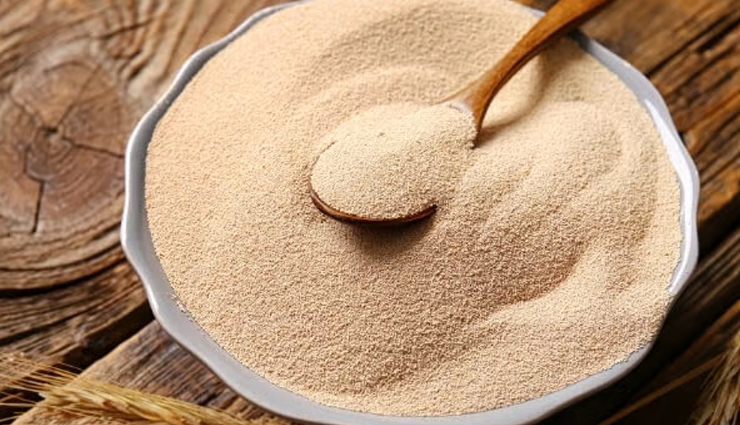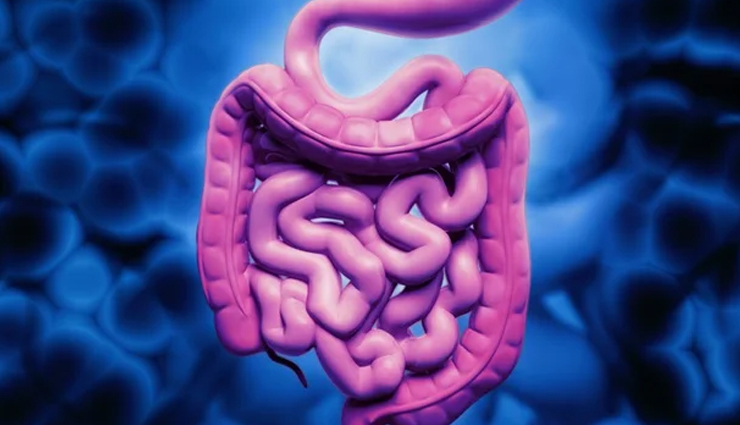- Home›
- Healthy Living›
- Brewer's Yeast: Unveiling The Benefits, Side Effects, And More
Brewer's Yeast: Unveiling The Benefits, Side Effects, And More
By: Priyanka Maheshwari Fri, 23 June 2023 4:51:47

Brewer's yeast, scientifically known as Saccharomyces cerevisiae, is a type of fungus that is used in the fermentation process of beer and bread. It is a byproduct of brewing beer, where the yeast is responsible for converting sugars into alcohol and carbon dioxide. Brewer's yeast is available in various forms, including powder, flakes, or tablets, and is commonly used as a nutritional supplement due to its rich composition of vitamins, minerals, and protein. It is known for its distinct flavor, slightly bitter taste, and dense nutritional profile, making it a popular choice for individuals seeking to boost their overall health and well-being. In this article, we will explore 10 benefits of consuming brewer's yeast daily, as well as 10 potential side effects to be aware of.
Benefits of Eating Brewer's Yeast

# Excellent Source of B Vitamins
Brewer's yeast is packed with B vitamins, including B1 (thiamine), B2 (riboflavin), B3 (niacin), B5 (pantothenic acid), B6 (pyridoxine), B7 (biotin), and B9 (folate). These vitamins play essential roles in energy metabolism, nerve function, and overall well-being.

# Enhances Digestive Health
The high fiber content in brewer's yeast promotes healthy digestion and can help alleviate constipation. It acts as a prebiotic, supporting the growth of beneficial gut bacteria.

# Supports Immune Function
Brewer's yeast contains beta-glucans, which have immune-enhancing properties. Regular consumption may strengthen the immune system and improve the body's ability to fight off infections.

# Promotes Healthy Skin and Hair
The abundance of B vitamins, particularly biotin and riboflavin, in brewer's yeast can contribute to healthier skin, nails, and hair. These vitamins play a vital role in maintaining the integrity and vitality of these tissues.

# Supports Weight Management
Brewer's yeast is low in calories and fat, making it a valuable addition to a weight management plan. The protein and fiber content help promote satiety, reducing the likelihood of overeating.

# Regulates Blood Sugar Levels
The chromium content in brewer's yeast may help regulate blood sugar levels by improving insulin sensitivity. This can be beneficial for individuals with diabetes or those at risk of developing the condition.

# Boosts Energy Levels
The B vitamins in brewer's yeast are involved in energy production, assisting in converting carbohydrates into usable energy. Regular consumption may help combat fatigue and increase overall energy levels.

# Supports Heart Health
Brewer's yeast contains compounds like chromium and niacin, which have been linked to improved heart health. These components may help lower cholesterol levels, reduce inflammation, and support cardiovascular function.

# Enhances Mood and Mental Well-being
B vitamins play a crucial role in maintaining optimal brain function and neurotransmitter production. Consuming brewer's yeast may help improve mood, reduce stress, and support mental well-being.
# Provides Essential Minerals
Brewer's yeast is a good source of essential minerals such as selenium, zinc, iron, and magnesium. These minerals are vital for various bodily functions, including immune support, energy production, and enzyme activity.
Side Effects of Eating Brewer's Yeast:

# Gastrointestinal Disturbances
One of the most commonly reported side effects of consuming Brewer's yeast is gastrointestinal disturbances. This can include symptoms such as bloating, gas, abdominal discomfort, and diarrhea. These effects are usually mild and temporary, but individuals with sensitive digestive systems may experience more pronounced discomfort.

# Allergic Reactions
While rare, allergic reactions to Brewer's yeast can occur. Allergies to yeast are typically characterized by symptoms like itching, hives, swelling, and difficulty breathing. If you experience any allergic reactions after consuming Brewer's yeast, it is crucial to seek medical attention immediately.

# Increased Gout Risk
Individuals with gout, a form of arthritis, should exercise caution when consuming Brewer's yeast. This is because Brewer's yeast is rich in purines, which are broken down by the body into uric acid. High levels of uric acid can exacerbate gout symptoms and increase the risk of gout attacks.

# Potential Interactions with Medications
Brewer's yeast may interact with certain medications. For instance, it can interact with monoamine oxidase inhibitors (MAOIs), a type of antidepressant, leading to an increase in blood pressure. Additionally, Brewer's yeast may interfere with antidiabetic medications, causing fluctuations in blood sugar levels. If you are taking any medications, it is crucial to consult your healthcare provider before incorporating Brewer's yeast into your daily routine.

# Risk of Yeast Infections
Consuming Brewer's yeast daily may increase the risk of yeast infections, especially in individuals who are susceptible to such infections. This is due to the high content of yeast in the supplement, which can potentially disrupt the natural balance of yeast in the body.

# Potential for Migraine Headaches
Some individuals may experience an increased frequency or severity of migraine headaches after consuming Brewer's yeast. While the exact cause is not fully understood, it is believed that certain compounds in Brewer's yeast, such as tyramine, may trigger migraines in susceptible individuals.
# Nutrient Imbalances
While Brewer's yeast is rich in various nutrients, including B vitamins, chromium, and selenium, consuming it in excessive amounts can lead to nutrient imbalances. This is particularly true if you rely solely on Brewer's yeast for your nutrient intake without maintaining a balanced diet. It is important to remember that Brewer's yeast should be seen as a supplement, not a replacement for a well-rounded diet.
# Potential for Increased Oxalate Levels
Individuals with a history of calcium oxalate kidney stones should be cautious when consuming Brewer's yeast. Brewer's yeast contains oxalates, which can contribute to the formation of kidney stones in susceptible individuals. If you have a history of kidney stones, it is advisable to consult with a healthcare professional before incorporating Brewer's yeast into your daily routine.
# Interference with Vitamin B12 Absorption
Although Brewer's yeast is often promoted as a source of vitamin B12, it contains an inactive form of the vitamin that cannot be readily absorbed by the body. Consequently, individuals relying solely on Brewer's yeast for their vitamin B12 intake may be at risk of developing a deficiency. It is essential to ensure an adequate and reliable source of active vitamin B12 in your diet.

# Potential for Weight Gain
Due to its high calorie and carbohydrate content, consuming Brewer's yeast daily without considering overall caloric intake can contribute to weight gain. If you are watching your weight or trying to lose weight, it is important to be mindful of portion sizes and incorporate Brewer's yeast into a balanced diet plan.





